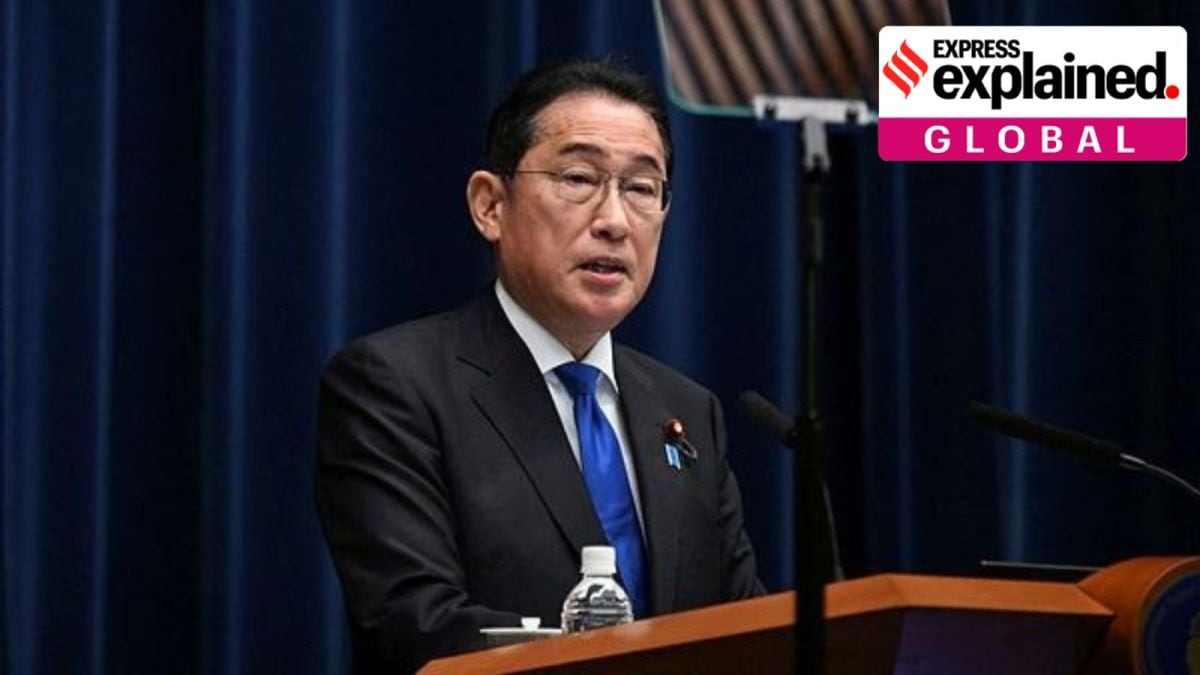Why is Japan’s Prime Minister Fumio Kishida resigning?
Kishida's approval ratings have touched rock bottom, and he has said that 'politics cannot function without public trust'. How did things come to this, and what happens now?

Japan’s Prime Minister Fumio Kishida announced on Wednesday (August 14) that he will be stepping down from the post next month, and will not contest in the upcoming vote to elect a new chief for the ruling Liberal Democratic Party (LDP).
Kishida has been having a torrid time in office, his government has been battered by scandals, and his 20% approval rating indicates a disastrous erosion of public trust.
What else is there to know about Fumio Kishida?
Fumio Kishida comes from Hiroshima, and the prime minister, who was born 12 years after the city was destroyed by the first nuclear weapon, lost several members of his family in the bombing. He has always supported nuclear nonproliferation and disarmament.
He belongs to a political family, and his father and grandfather served in the House of Representatives, the lower house of Japan’s parliament (Diet).
Kishida himself worked with the erstwhile Long-Term Credit Bank of Japan (now known as Shinsei Bank) for about five years before making his foray into politics. He was elected to the lower house in 1993, and served in several capacities before being appointed minister for foreign affairs in the cabinet of Prime Minister Shinzo Abe in 2012. He remained in the post until 2017, becoming Japan’s longest serving foreign minister.
In September 2021, Kishida became president of the LDP after defeating Taro Kono in a runoff vote to replace the outgoing leader and Prime Minister Yoshihide Suga. He became prime minister and formed his first cabinet the following month.
Kishida heads the liberal Kōchikai faction of the LDP, currently the fourth-largest faction in the party with 47 members. He is the first leader from this group to serve as prime minister in 30 years.
So why is Prime Minister Kishida resigning?
The prime minister told a press conference on Wednesday that “Politics cannot function without public trust,” a reference to a slush funds scandal that has unfolded over the past year, and severely tarnished the government’s image.
A Nikkei poll has projected the government’s approval rating at just 20% for eight consecutive months until July, down sharply from the 60% rating that Kishida enjoyed when he took office in late 2021.
“It is necessary to show the public the new, changed LDP,” Kishida said. “The most obvious first step toward showing that the party will change is for me to step aside.”
CORRUPTION SCANDAL: In December 2023, allegations surfaced about lawmakers from the LDP’s Seiwa Seisaku Kenyūkai, Shisuikai, and Kōchikai factions having failed to report more than 600 million yen in campaign cash that had been stowed away in illegal slush funds.
Voters who were already struggling with rising living costs, did not take the revelations kindly, and handed Kishida’s party a sobering defeat in all three parliamentary by-elections held in April.
CHURCH SCANDAL: Kishida’s problems were compounded by revelations about his party’s relationship with the controversial Unification Church, regarded locally as a cult, and alleged to have links with the assassination of Prime Minister Shinzo Abe in July 2022.
Kishida’s approval ratings were battered by speculation that the Church had influenced public policy, following reports of party members benefiting from the Church’s funding or attending its events.
ECONOMIC POLICY: As PM, Kishida batted for a “new capitalism” to combat decades of slow growth rates and deflation. “During my three years as prime minister and party president, I put an end to the deflationary economy and revived the ‘animal spirits’ of raising wages and promoting investment,” he said.
Kishida attempted to replace the country’s neoliberal policies with a more inclusive stakeholder policy, promising a “virtuous cycle of growth and distribution” of wealth. He batted for wage increases to boost consumption spending and revitalise the middle class.
However, the weak yen effectively negated any policy effect, with anticipation of a rate cut by the US Federal Reserve in September only serving to weaken the yen further. The yen is currently at an almost four-decade low against the dollar, which has led to a dramatic increase in the prices of food and vital imports such as fuel. As a consequence, real wages (adjusted for inflation) have in fact worsened in many cases.
Compounding the situation are Japan’s declining birth rate, the rapidly ageing population and rampant income inequality across genders, all long-standing demographic challenges. In June, Kishida passed a law aimed at arresting the decline in the birth rate, expanding child allowances and parental leave.
What will happen after Kishida’s announcement?
The LDP has maintained control over political power in Japan since 1955, barring four years in the 1990s. There is no fear of an ‘opposition’ government coming to power, but the LDP will have a new leader, and Japan a new prime minister.
Campaigning for the party’s presidential race next month kicked off on Thursday (August 15). The Japan Times reported that Kono, who is now the digital minister, LDP secretary-general Toshimitsu Motegi, and former LDP secretary-general Shigeru Ishiba could be among the possible replacements for Kishida.
Candidates who secure signatures from 20 LDP lawmakers are eligible to contest for the post. Once the new chief is selected, a parliamentary session will be held to elect the next prime minister, with the candidate winning the majority of votes cast by both houses of parliament taking charge.